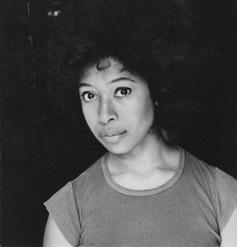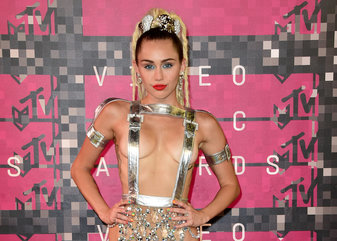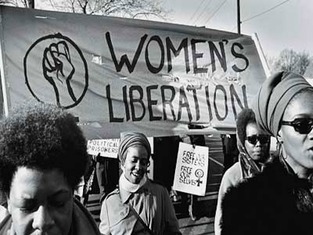Womanism: Represents an expectation and experience of the black woman as one filled with the quest for knowledge, competence, and authority that surpasses the individual, but encompasses the group.-Michaela Pecot

Womanism: Represents an expectation and experience of the black woman as one filled with the quest for knowledge, competence, and authority that surpasses the individual, but encompasses the group.
It is easy to understand the dissonance between young black women and the popular feminist movement of today. Supporters of the movement are of white majority. Feminists of color that do support the movement often have their own sects and individuated beliefs. I, as a young black woman, had a hard time identifying as a feminist. Then I came across womanism, a philosophy developed mainly by the author Alice Walker (for more info on womanism v. feminism, check out this link).
While feminism focuses mainly on the eurocentric dynamics between the two genders, womanism specifically takes into account how the gender imbalance between black men and women is the result of the oppression the community has experienced. The diaspora, sexualization of black women, the demasculinizing of black men, as well of a multitude of other factors have contributed to the lack of respect black men have for black women.
The diaspora has removed black people from their original cultures, cultures which have a history of being matriarchal. The sexualization of black women by American media has primed the way people of all races and genders view black women. The historic demasculinization of black men has created a inferiority complex within a lot of men in the black community which results in disrespect against black women as a kind of overcompensation.
Womanists see that in order to progress as a group, black women and men need to come together in solidarity to fight the other forms of subjugation they experience.
While womanism is focused on the black experience, it does so “seek[ing] out the voices of the unheard and the experiences of the neglected.” While white women typically speak out for the entire female population, womanism aims to give the ostracized black woman a space to validate her experience.
It is easy to understand the dissonance between young black women and the popular feminist movement of today. Supporters of the movement are of white majority. Feminists of color that do support the movement often have their own sects and individuated beliefs. I, as a young black woman, had a hard time identifying as a feminist. Then I came across womanism, a philosophy developed mainly by the author Alice Walker (for more info on womanism v. feminism, check out this link).
While feminism focuses mainly on the eurocentric dynamics between the two genders, womanism specifically takes into account how the gender imbalance between black men and women is the result of the oppression the community has experienced. The diaspora, sexualization of black women, the demasculinizing of black men, as well of a multitude of other factors have contributed to the lack of respect black men have for black women.
The diaspora has removed black people from their original cultures, cultures which have a history of being matriarchal. The sexualization of black women by American media has primed the way people of all races and genders view black women. The historic demasculinization of black men has created a inferiority complex within a lot of men in the black community which results in disrespect against black women as a kind of overcompensation.
Womanists see that in order to progress as a group, black women and men need to come together in solidarity to fight the other forms of subjugation they experience.
While womanism is focused on the black experience, it does so “seek[ing] out the voices of the unheard and the experiences of the neglected.” While white women typically speak out for the entire female population, womanism aims to give the ostracized black woman a space to validate her experience.

Feminists have often criticized black artists like Nicki Minaj for oversexualizing herself while praising artists like Miley Cyrus who displays her body in the same fashion (for more info, read this). This intrinsic racism warrants a young black girl to stay away from “white feminism” altogether or question herself because of these double standards. That's when a young black girl would benefit from learning about womanism. As Walker wrote she,
“rejects feminism as the theology of Africana women, that is to say women of the African diaspora, because it is philosophically rooted in Eurocentric ideals. She further asserts that it is impossible to incorporate the cultural perspectives of African women into the feminist ideal due to the history of slavery and racism in America.“
The intersectionality black women experience interconnects their manifold oppressions. While a cis white woman is subjugated solely because of her gender orientation, a cis black woman is subjugated because of her ethnicity and her gender. This experience cannot be explained by a white feminist because it is inherently different. Womanism lets black women speak for themselves, as Alice Walker says: “womanism is characterized by black women telling their stories.” While the progress towards equality for white woman is guarded by a singular fence, the progress for equality for black women is guarded by two. So until we have racial equality and understanding, I’ll call myself a womanist and not a feminist.
“rejects feminism as the theology of Africana women, that is to say women of the African diaspora, because it is philosophically rooted in Eurocentric ideals. She further asserts that it is impossible to incorporate the cultural perspectives of African women into the feminist ideal due to the history of slavery and racism in America.“
The intersectionality black women experience interconnects their manifold oppressions. While a cis white woman is subjugated solely because of her gender orientation, a cis black woman is subjugated because of her ethnicity and her gender. This experience cannot be explained by a white feminist because it is inherently different. Womanism lets black women speak for themselves, as Alice Walker says: “womanism is characterized by black women telling their stories.” While the progress towards equality for white woman is guarded by a singular fence, the progress for equality for black women is guarded by two. So until we have racial equality and understanding, I’ll call myself a womanist and not a feminist.


